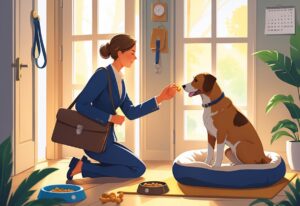How do you know what type of food to feed your elderly cat? It can be challenging without a vet checkup. Always watch your elderly cat's appetite, food intake, eating habits, weight, and body condition. This info will be valuable when you and your veterinarian decide your cat's special nutritional needs. Unless your cat has problems digesting regular cat food, is becoming overweight or is on prescription food, complete formulation cat food accompanied by clear water is sufficient.
Because cats are social animals, your senior cat may also be pleased about a warm nesting point near the center of your family activity. It is suggested to move older cats onto a specially formulated senior cat food. Store bought cat foods made especially for senior cats provide superior-quality protein and lower phosphorus levels to cut down kidney stress. The senior citizen cat formulas also add Vitamin E to strengthen the older cat's authentic defenses.
Cats Getting Older
Cats go through more than a few physical and behavioral changes as they age. As your cat's metabolism slows down, the cat's senses begin to diminish. Senior cats have more problems with taste, sight, smell, and hearing. Sadly, these physical changes are a reality of life, and the cat owner must fine-tune the feeding of their cat. Weight loss and weight gain both can both be troubles in elderly cats.
Controlling Disease in Cats Through Proper Nutrition
There are several diseases and afflictions that felines develop in old age. Cats with cancer have extra nutritional needs. Increasing omega-3 fatty acids and beta-carotene in the elder cat's diet will aid felines with cancer. Bowel movements may get worse as the cat ages, creating problems such as reduced ability to absorb food nutrients. This can lead to weight loss. Preservatives in cat food have been finger-pointed for everything from allergies to cat cancer. This point is still being researched and debated.
Preparing Cat Food
If you are feeding canned food, warming up an opened can may take up to two hours from being taken out of the fridge. Alternatively, you might consider microwaving canned foods for a short time, but be careful of hot spots. If you a mental picture to go by, just think of Goldilocks. She wanted her porridge just right, not too warm, not too cold. Cats are the same way.
Water For Your Older Cat
You should give your cat fresh water each time you feed it. Older cats tend to get dehydrated easier. Keeping the senior cat properly hydrated is critical. Mature cats are often poor drinkers even when water is available, so giving the cat pure, fresh water makes it better. I suggest numerous bowls of fresh water in several parts in your home.
Final Older Cat Suggestions
Visiting a veterinarian regularly for geriatric laboratory tests to establish a cat's perfect weight and diet is the key to success. Veterinarians have yet to develop a “one size fits all” older cat diet. The task is merely impossible given the enormous diversity of senior cats and their varying health issues. Listening and following the recommendations of your veterinarian is key to your cat's health.





